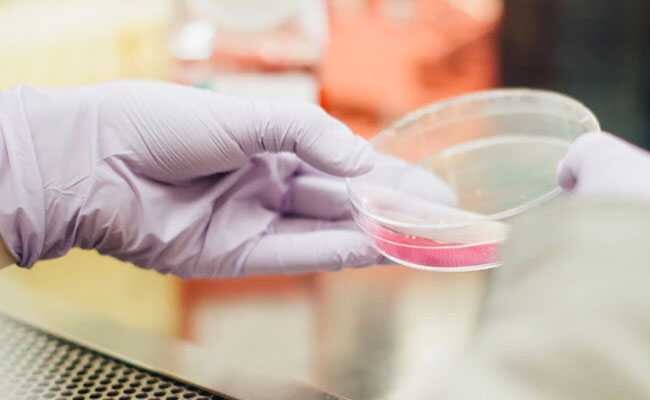
Veena Sahajwalla is also associated with Australian Research Council. (Representational)
Melbourne:
Indian-origin innovator Veena Sahajwalla, who has made her mark in revolutionising recycling science, is among the 21 distinguished Australian scientists elected as new fellows of the prestigious Australian Academy of Science this year.
The Academy, a not-for-profit organisation founded in 1954, said they have been honoured for making significant and lasting impacts in their scientific disciplines.
Their works include revolutionising the way e-waste is recycled, changing the way people think about carbohydrate foods, research that led to the detection of gravitational waves and new insights into how the immune system may be harnessed to devise new therapies for cancer and other diseases, it said.
Ms Sahajwalla, an internationally-recognised materials scientist, engineer and innovator, has made her mark in revolutionising recycling science. She is currently the Associate Dean (Strategic Industry Relations), Faculty of Science, at the University of New South Wales (UNSW) in Sydney.
She is also associated with Australian Research Council as its Laureate fellow.
Ms Sahajwalla, who did her B. Tech in metallurgical engineering from the Indian Institute of Technology (IIT) in Kanpur, is renowned for pioneering the high temperature transformation of waste in the production of a new generation of 'green materials'.
As Director of the Sustainable Materials Research and Technology (SMaRT) Centre at the UNSW, she has built a world-class research hub and leads a highly innovative research program that fosters innovation and promotes collaboration with industry to ensure that scientific advances in sustainable materials and processes are readily translated into commercially-viable environmental solutions.
In April this year, she launched the world's first e-waste microfactory, which has the potential to reduce the vast amount of electronic waste heading into landfill.
Congratulating the newly-elected fellows, Australian Academy of Science President Andrew Holme said these scientists were elected by their Academy peers following a rigorous evaluation process.
"From 23 Founding Fellows in 1954, the election this year of our new Fellows brings our total number of living Fellows to 568. They join a prestigious group - six Nobel Prize winners and luminaries including Sir Mark Oliphant, Professor Nancy Millis, Sir Douglas Mawson, Professor Frank Fenner and Sir David Attenborough," he said.
Alan Andersen, the world's leading ant community ecologist from the Australian state of Norther Territory, is also among the top scientists who have been acknowledged for their outstanding contributions to science.
According to an official release, mathematician Geordie Williamson, who at age 36, becomes the youngest living Fellow of the Academy.
Anne Kelso, who has substantially strengthened Australia's position in global influenza virus surveillance and pandemic preparedness and is currently leading the National Health and Medical Research Council, has also made it to the list.
The Australian Academy of Science provides independent, authoritative and influential scientific advice, promotes international scientific engagement, builds public awareness and understanding of science, and champions, celebrates and supports excellence in Australian science.
The Academy, a not-for-profit organisation founded in 1954, said they have been honoured for making significant and lasting impacts in their scientific disciplines.
Their works include revolutionising the way e-waste is recycled, changing the way people think about carbohydrate foods, research that led to the detection of gravitational waves and new insights into how the immune system may be harnessed to devise new therapies for cancer and other diseases, it said.
Ms Sahajwalla, an internationally-recognised materials scientist, engineer and innovator, has made her mark in revolutionising recycling science. She is currently the Associate Dean (Strategic Industry Relations), Faculty of Science, at the University of New South Wales (UNSW) in Sydney.
She is also associated with Australian Research Council as its Laureate fellow.
Ms Sahajwalla, who did her B. Tech in metallurgical engineering from the Indian Institute of Technology (IIT) in Kanpur, is renowned for pioneering the high temperature transformation of waste in the production of a new generation of 'green materials'.
As Director of the Sustainable Materials Research and Technology (SMaRT) Centre at the UNSW, she has built a world-class research hub and leads a highly innovative research program that fosters innovation and promotes collaboration with industry to ensure that scientific advances in sustainable materials and processes are readily translated into commercially-viable environmental solutions.
In April this year, she launched the world's first e-waste microfactory, which has the potential to reduce the vast amount of electronic waste heading into landfill.
Congratulating the newly-elected fellows, Australian Academy of Science President Andrew Holme said these scientists were elected by their Academy peers following a rigorous evaluation process.
"From 23 Founding Fellows in 1954, the election this year of our new Fellows brings our total number of living Fellows to 568. They join a prestigious group - six Nobel Prize winners and luminaries including Sir Mark Oliphant, Professor Nancy Millis, Sir Douglas Mawson, Professor Frank Fenner and Sir David Attenborough," he said.
Alan Andersen, the world's leading ant community ecologist from the Australian state of Norther Territory, is also among the top scientists who have been acknowledged for their outstanding contributions to science.
According to an official release, mathematician Geordie Williamson, who at age 36, becomes the youngest living Fellow of the Academy.
Anne Kelso, who has substantially strengthened Australia's position in global influenza virus surveillance and pandemic preparedness and is currently leading the National Health and Medical Research Council, has also made it to the list.
The Australian Academy of Science provides independent, authoritative and influential scientific advice, promotes international scientific engagement, builds public awareness and understanding of science, and champions, celebrates and supports excellence in Australian science.
Track Latest News Live on NDTV.com and get news updates from India and around the world

